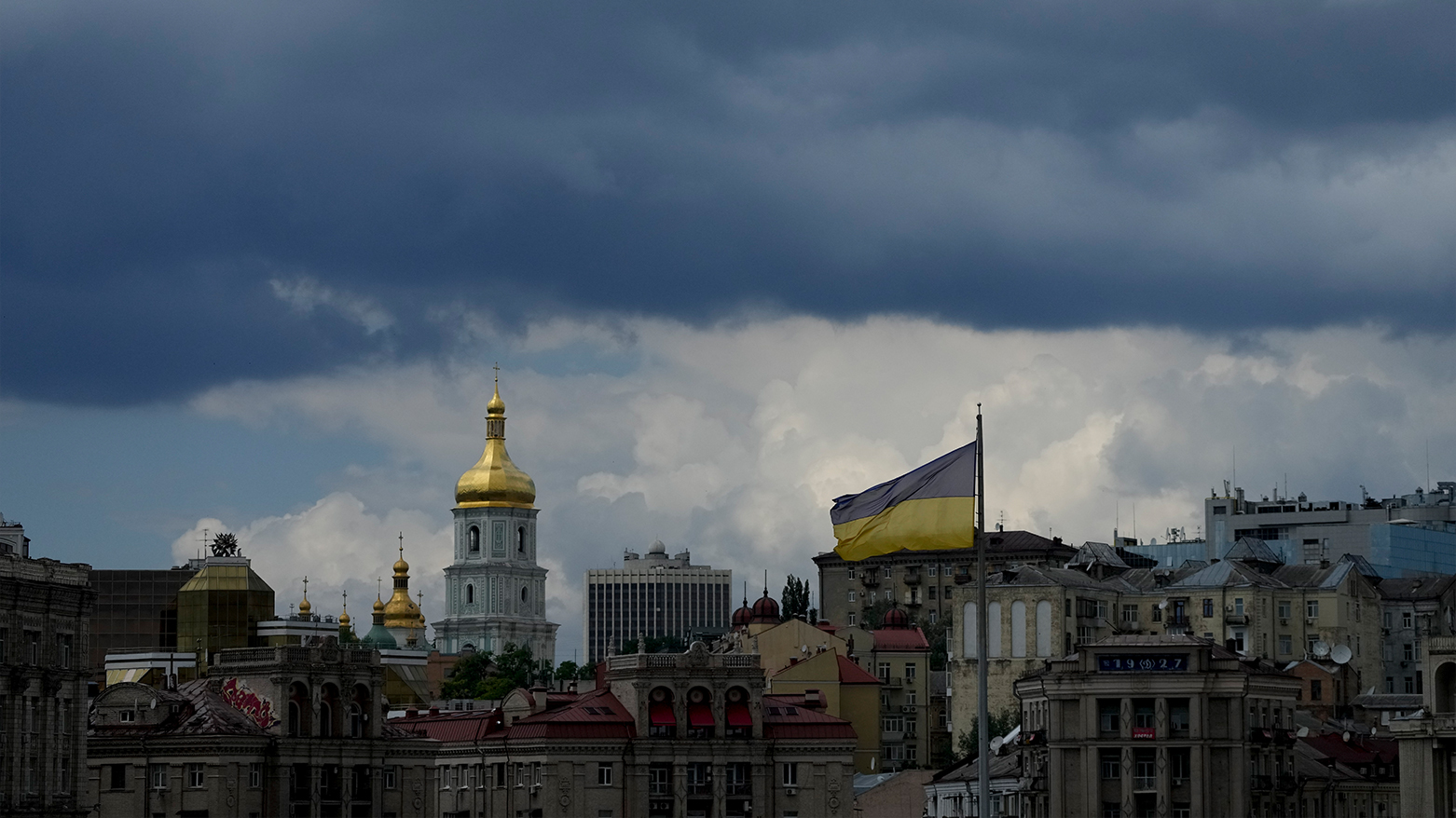Kyiv Refutes Claims of Involvement in Militancy in Iraq, Kurdistan
Ukraine's embassy in Iraq has denied training militants or making drones for illegal use, calling such claims disinformation. The statement follows recent deadly clashes in Sulaimani where a bomb-laden drone was reportedly used.

ERBIL (Kurdistan24) – The Embassy of Ukraine in the Republic of Iraq has issued a categorical denial of allegations that it is involved in training militants or producing drones for illegal use, labeling such claims as "blatant disinformation" aimed at discrediting the country.
The strong rebuttal, released in a formal statement on Saturday, comes in the wake of significant internal armed conflict within the Kurdistan Region's Sulaimani province, where the use of a bomb-laden drone was reported during a recent clash.
In its statement, the Ukrainian Embassy addressed what it described as "false reports" that had appeared in some media outlets.
"The Embassy of Ukraine in the Republic of Iraq categorically denies the false reports that have appeared in some media outlets, alleging that the Ukrainian side is involved in the preparation or training of individuals engaged in unlawful activities on the territory of Iraq or the Kurdistan Region of Iraq," the communication read.
The embassy firmly asserted that "Ukraine has never carried out and does not carry out any activities related to the training of militants or the production of unmanned aerial vehicles for illegal use outside our state." It characterized the claims as having no factual basis and framed their dissemination as an "attempt to discredit Ukraine and its leadership."
The statement concluded with a call for media representatives to rely solely on official and verified sources and to refrain from spreading unverified reports.
While the embassy's statement did not specify the origin of the allegations, it was issued less than a week after a major and violent military operation unfolded in the city of Sulaimani, a key event previously covered by Kurdistan24.
In the pre-dawn hours of August 22, a large contingent of forces from the Patriotic Union of Kurdistan (PUK) launched an assault on the Lalezar Hotel, the headquarters of former PUK co-leader Lahur Sheikh Jangi and his newly formed People's Front party.
The operation, which was based on a judicial arrest warrant, escalated into a four-hour firefight involving heavy weapons.
During the chaotic events, the headquarters of the PUK's Force 70 Command was reportedly attacked by a bomb-laden drone, adding a significant technological and tactical dimension to the internal political conflict.
The "Lalezar Hotel Clash" resulted in the arrest of Lahur Sheikh Jangi and his brother, Polad, and caused a significant number of casualties. While official figures from health authorities in Sulaimani confirmed that three members of the PUK forces were killed and 19 others were wounded, a source told Kurdistan24 at the time that the number of victims among Sheikh Jangi's affiliated 'Dupshk' (Scorpion) force was much higher, with an estimated 30 to 40 casualties.
The unilateral military operation, which the Kurdistan Regional Government (KRG) confirmed it was not informed of in advance, drew sharp condemnation from the Independent Human Rights Commission for its "inappropriate military display" and the use of counter-terrorism forces instead of police to serve a warrant.
The aftermath of the clashes has been tense, with PUK forces seizing assets linked to Sheikh Jangi, including a television station and a football club.
The incident also prompted a formal investigation by the Public Prosecutor in the Kurdistan Region to scrutinize the events and ensure adherence to legal principles. In a recent development, the KRG's Independent Human Rights Commission announced it had successfully coordinated with the Sulaimani Asayish (security) to secure visitation rights for the families of the 'Du Pshk' fighters who were detained during the operation, signaling a move toward reasserting legal processes in the wake of the partisan military action.
The Ukrainian embassy's forceful denial now injects an international dimension into the discourse surrounding regional security and the proliferation of advanced military technologies like unmanned aerial vehicles in internal conflicts.